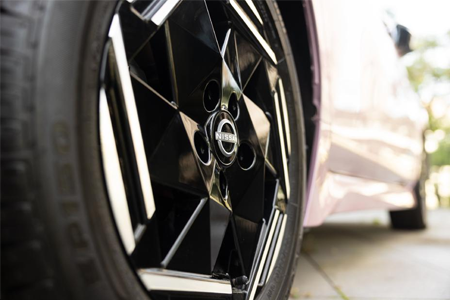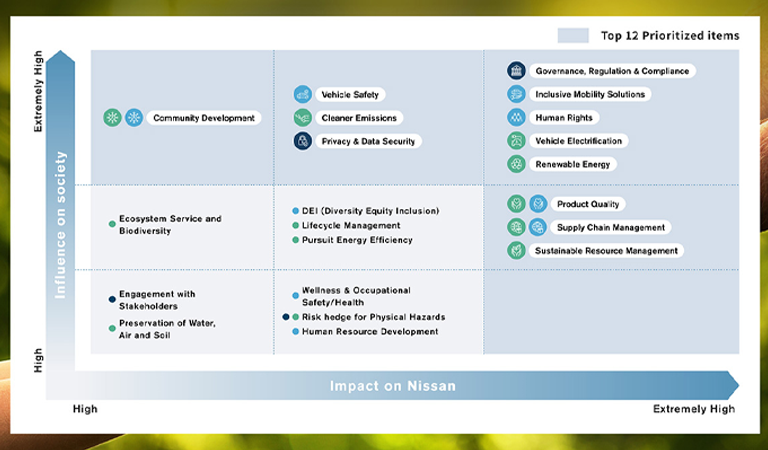
Nissan is committed to a greener future. The automotive giant has set an ambitious target: to achieve carbon neutrality across its global operations and the life cycle of its products by 2050. This ambitious goal is part of Nissan’s broader sustainability strategy, which aims to reduce environmental impact and create a more sustainable world.
The company recognises the urgent need to address climate change and is taking proactive steps to reduce its carbon footprint and contribute to a cleaner planet.
Electrification at the Forefront
One of the key pillars of Nissan’s sustainability strategy is electrification. The company has pledged that by the early 2030s, every all-new Nissan vehicle offering in key markets will be electrified. This means that Nissan is accelerating its development of electric vehicles (EVs), hybrid vehicles (HEVs), and plug-in hybrid vehicles (PHEVs).
By transitioning to electric powertrains, Nissan aims to reduce tailpipe emissions and promote cleaner transportation. The company is investing heavily in research and development to develop innovative electric vehicle technologies, such as advanced battery systems and efficient electric motors.
Committing to Low-Carbon Aluminium for Sustainable Vehicles
Also announced by Nissan was a significant step towards achieving carbon neutrality: the company will use low-carbon emission aluminium parts in all new and existing models starting from fiscal year 2024. By 2030, Nissan aims to transition completely to these sustainable aluminium components.
Aluminium constitutes roughly 10% of a vehicle’s weight, making it a crucial factor in reducing overall emissions. By adopting low-carbon aluminium, Nissan is taking a substantial stride towards its goal of carbon neutrality by 2050.
Green aluminium, produced using renewable energy sources, can significantly reduce CO2 emissions during production by up to 50%. Recycled aluminium offers an even more substantial reduction, cutting emissions by approximately 95%.
Nissan has already been sourcing low-carbon aluminium sheets from Kobe Steel and UACJ Corporation for domestic vehicle production. The company now plans to extend this practice globally, incorporating low-carbon aluminium into all aluminium components, including processed parts.
For new models launching from fiscal year 2027, low-carbon aluminium will be a standard feature. Current models in Japan, the United States, and Europe will begin using green aluminium for wheels, chassis parts, axle parts, and harness wires. This shift is expected to replace about 20% of newly mined aluminium used for car parts in these markets by the end of fiscal year 2024.

Beyond the Vehicle: A Holistic Approach
Nissan’s commitment to sustainability extends beyond its vehicles. The company is also working to reduce its environmental footprint across its entire operations. This includes initiatives to:
- Reduce energy consumption: Nissan is investing in energy-efficient technologies and renewable energy sources to power its manufacturing facilities. The company is implementing energy-saving measures, such as LED lighting and building automation systems, to reduce its energy consumption and carbon emissions.
- Minimise waste: The company is implementing recycling programs and reducing waste generation throughout its supply chain. Nissan is committed to reducing the amount of waste it produces and ensuring that waste is disposed of responsibly. The company is also exploring opportunities to reuse and recycle materials to minimise its environmental impact.
- Improve water efficiency: Nissan is taking steps to conserve water and reduce its water consumption. The company is implementing water-saving measures in its manufacturing facilities and is working to reduce water pollution.
Nissan’s Environmental Sustainability Initiatives
To support its sustainability goals, Nissan has launched several initiatives, including:
- The Nissan Green Program: This program focuses on reducing the environmental impact of Nissan’s products and operations. The Nissan Green Program encompasses a wide range of initiatives, from developing more sustainable vehicles to reducing the company’s energy consumption and waste generation.
- The Nissan LEAF: As one of the world’s first mass-produced electric cars, the Nissan LEAF has played a significant role in promoting electric vehicle adoption. The LEAF has demonstrated the viability and benefits of electric vehicles and has helped to pave the way for the wider adoption of electric transportation.
- Partnerships and collaborations: Nissan is working with other companies, governments, and organisations to develop sustainable technologies and solutions. The company is collaborating with partners to accelerate the development of electric vehicle infrastructure, promote renewable energy, and address other environmental challenges.

The Road Ahead
Nissan’s journey towards carbon neutrality is a long-term commitment. However, the company has made significant progress in recent years and is well-positioned to achieve its goals. By investing in electrification, reducing its environmental footprint, and collaborating with partners, Nissan is demonstrating its leadership in sustainability. The company’s efforts are contributing to a cleaner and more sustainable future for generations to come.